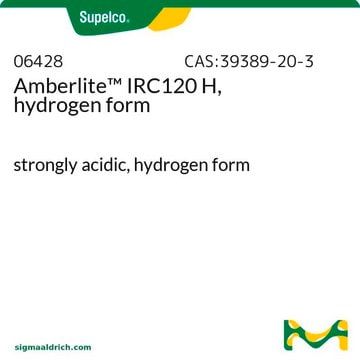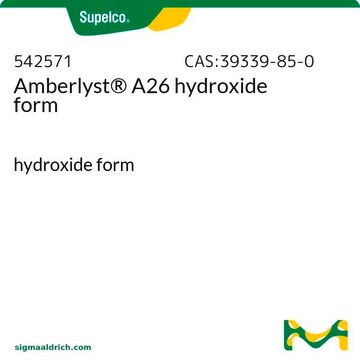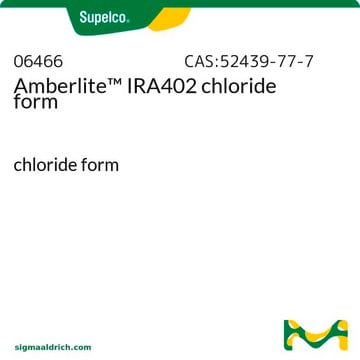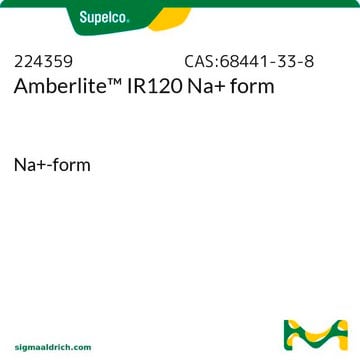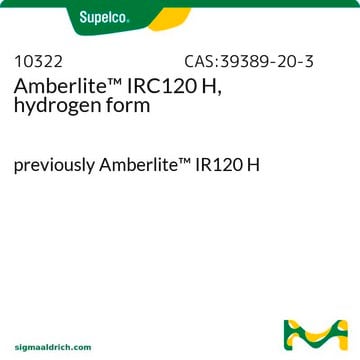Recommended Products
form
beads
crosslinking
8 % cross-linked
packaging
bucket of 500 g
parameter
121 °C max. temp.
moisture
49-55%
technique(s)
LPLC: suitable
matrix
styrene-divinylbenzene (gel)
matrix active group
SCX
particle size
600-700 μm
operating pH
0-14
capacity
1.9 meq/mL by wetted bed volume
separation technique
cation exchange
General description
Amberlite™ IRN77 is a strong acid cation exchange resin.
As Nuclear Grade, a minimum of 99% of the available exchange sites are in the hydrogen form.
Strongly acidic cation exchange resin for water treatment, RAD waste treatment, decontamination.
Application
Amberlite™ IRN77 was used as cation exchanger to determine the sorption activity towards Cs(I) and Sr(II) using isothermal titration calorimetry and solution-depletion methods.
Legal Information
Amberlite is a trademark of DuPont de Nemours, Inc.
Signal Word
Warning
Hazard Statements
Precautionary Statements
Hazard Classifications
Eye Irrit. 2
Storage Class Code
10 - Combustible liquids
WGK
WGK 3
Flash Point(F)
Not applicable
Flash Point(C)
Not applicable
Personal Protective Equipment
dust mask type N95 (US), Eyeshields, Gloves
Choose from one of the most recent versions:
Already Own This Product?
Find documentation for the products that you have recently purchased in the Document Library.
Benedicte Prelot et al.
Environmental science and pollution research international, 21(15), 9334-9343 (2014-04-15)
Sorption performance of cation-exchange resins Amberlite® IRN77 and Amberlite™ IRN9652 toward Cs(I) and Sr(II) has been tested in single-component aqueous solutions and simulated waste effluents containing other monovalent (Effluent 1) or divalent (Effluent 2) metal cations, as well as nitrate
Kyeong-Ho Yeon et al.
Water research, 38(7), 1911-1921 (2004-03-18)
This study investigated the production of high-purity water in the primary coolant of a nuclear power plant via the continuous electrodeionization (CEDI) process, using ion exchange resins as ion-conducting media between ion exchange membranes. The effectiveness of this method was
Cristina Morales Torres et al.
Nature communications, 11(1), 1792-1792 (2020-04-15)
Continuous cancer growth is driven by subsets of self-renewing malignant cells. Targeting of uncontrolled self-renewal through inhibition of stem cell-related signaling pathways has proven challenging. Here, we show that cancer cells can be selectively deprived of self-renewal ability by interfering
Our team of scientists has experience in all areas of research including Life Science, Material Science, Chemical Synthesis, Chromatography, Analytical and many others.
Contact Technical Service
